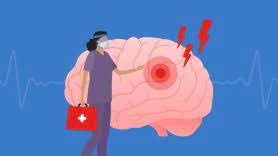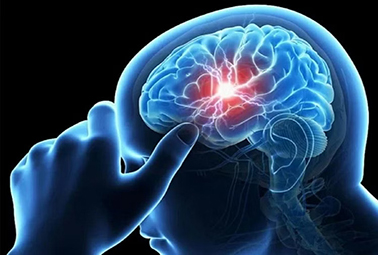 By Dr Mazda Turel
By Dr Mazda Turel
(Brain and Spine Surgeon, Wockhardt Hospitals, Mumbai)
Brain tumors are abnormal cell growths within the brain that could be either benign or malignant. While relatively rare in occurence, accounting for 1 – 2% of all cancers worldwide, they can have a significant impact on individuals and communities. It is crucial to raise awareness about brain tumors, improve diagnosis and treatment options, and provide support to those affected. This article provides an overview of brain tumors, including their types, symptoms, diagnosis, treatment and prognosis.
Brain tumors can originate within the brain (primary tumors) or spread from other parts of the body (secondary or metastatic tumors). There are various types of brain tumors, including gliomas, meningiomas, pituitary adenomas, medulloblastomas, ependymomas, and metastatic tumors. Each type has unique characteristics and requires tailored treatment approaches.
 Symptoms of brain tumors can vary depending on their location and size. Common symptoms include persistent headaches, seizures, changes in vision or hearing, difficulty speaking or understanding language, loss of balance or coordination, memory problems and personality or behavior changes.
Symptoms of brain tumors can vary depending on their location and size. Common symptoms include persistent headaches, seizures, changes in vision or hearing, difficulty speaking or understanding language, loss of balance or coordination, memory problems and personality or behavior changes.
Diagnosing brain tumors involves a combination of medical history evaluation, neurological examination, imaging tests (such as MRI or CT scans), and sometimes a biopsy. It is important to consider imaging for any headache that does not improve within two weeks, despite medication.
The treatment of brain tumors depends on factors like its type, size, location, and grade of the tumor, as well as the patient’s overall health. Treatment options may include surgery, radiation therapy and chemotherapy. Surgical adjuncts, like Intraoperative Imaging, Neuro-navigation and Robotics, have enhanced treatment outcomes, while advances in radiation oncology have improved results. The treatment plan is determined by a multidisciplinary team of specialists who consider the best approach for each individual case.
The prognosis for brain tumors varies widely and depends on several factors, including the type and grade of the tumor, its location, the patient’s age and overall health, and the extent of surgical removal. Some brain tumors can be successfully treated or managed, while others may have a poorer prognosis. Early and accurate diagnosis is crucial for initiating appropriate treatment and improving outcomes.
International Brain Tumor Day, observed on June 8th each year, serves as a global platform to raise awareness about brain tumors, support patients and their families, and promote research and advocacy efforts. On this day, various activities and events are organized by patient advocacy groups, healthcare organizations, and research institutions. These activities include educational seminars, public awareness campaigns, fundraising events, support group meetings, and social media campaigns. The aim is to foster understanding, provide support, encourage collaboration, and promote advancements in research and treatment options.
Brain tumors pose a significant challenge to individuals and communities worldwide. It is essential to increase awareness, improve early diagnosis, and enhance treatment options for better outcomes. International Brain Tumor Day plays a vital role in supporting patients, raising funds for research, and fostering collaboration among healthcare professionals, researchers, policymakers, and the general public. By joining forces, we can make a difference in the lives of those affected by brain tumors.
- કરાણી અગિયારીની 178માં સાલગ્રેહની ઉજવણી - 22 February2025
- યંગ રથેસ્ટાર્સ દ્વારા અનાજ વિતરણનું આયોજન - 22 February2025
- ક્લીન એન્ડ ગ્રીન ઉદવાડા ટ્રસ્ટ ચેમ્પિયન્સ સસ્ટેનેબિલિટી - 22 February2025
